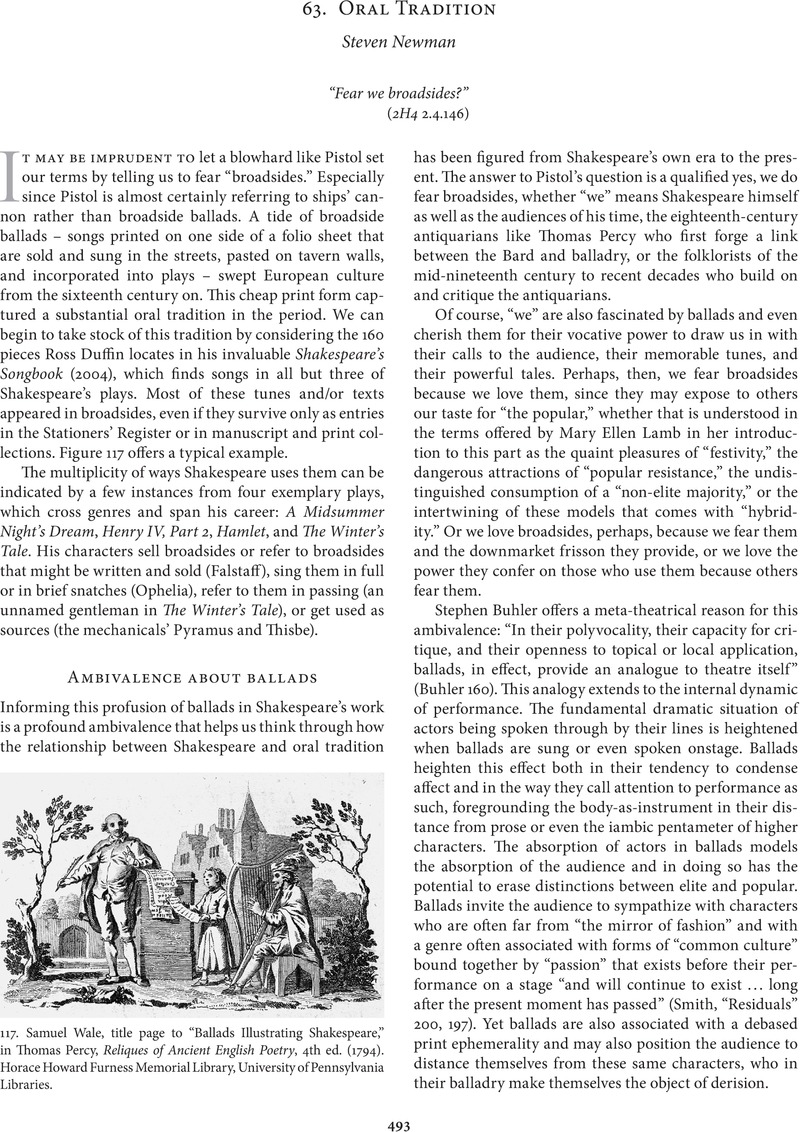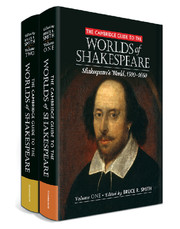Book contents
- The Cambridge Guide to the Worlds of Shakespeare
- Frontispiece
- Frontispiece
- The Cambridge Guide to the Worlds of Shakespeare
- Worlds of Shakespeare
- Copyright page
- Contents
- Illustrations
- Contributors
- Preface
- Acknowledgments
- Abbreviations
- Part I Mapping Shakespeare’s World
- Part II Theater
- Part III Language
- Part IV Science and Technology
- Part V Printing, Publishing, Textuality
- Part VI Visual Arts
- Part VII Popular Culture
- Introduction
- 63 Oral Tradition
- 64 Cheap Print
- 65 Popular Fiction
- 66 Traditional Entertainments and Celebrations
- 67 Flytings, Polemics, Charivaris
- 68 News Culture
- 69 Women’s Culture
- Part VIII High Culture
- Part IX England, 1560–1650
- Part X Religion
- Part XI Medicine
- Part XII The Historical William Shakespeare
- Part XIII Shakespeare’s Fellows
- Part XIV Shakespeare’s Early Reception (to 1660)
- Part XV International Encounters
- Part XVI Making the Scene
- Part XVII Shakespeare as Cultural Icon
- Part XVIII Shakespeare and Popular Culture
- Part XIX Translation
- Part XX Changing Technologies of Stage Performance
- Part XXI Audiences
- Part XXII Production History
- Part XXIII Printing and Reception History
- Part XXIV Shakespeare and the Book
- Part XXV Shakespeare and the Critics
- Part XXVI Shakespeare and the Performing Arts
- Part XXVII Shakespeare and the Visual Arts
- Part XXVIII Shakespeare and Media History
- Index
- References
63 - Oral Tradition
from Part VII - Popular Culture
Published online by Cambridge University Press: 17 August 2019
- The Cambridge Guide to the Worlds of Shakespeare
- Frontispiece
- Frontispiece
- The Cambridge Guide to the Worlds of Shakespeare
- Worlds of Shakespeare
- Copyright page
- Contents
- Illustrations
- Contributors
- Preface
- Acknowledgments
- Abbreviations
- Part I Mapping Shakespeare’s World
- Part II Theater
- Part III Language
- Part IV Science and Technology
- Part V Printing, Publishing, Textuality
- Part VI Visual Arts
- Part VII Popular Culture
- Introduction
- 63 Oral Tradition
- 64 Cheap Print
- 65 Popular Fiction
- 66 Traditional Entertainments and Celebrations
- 67 Flytings, Polemics, Charivaris
- 68 News Culture
- 69 Women’s Culture
- Part VIII High Culture
- Part IX England, 1560–1650
- Part X Religion
- Part XI Medicine
- Part XII The Historical William Shakespeare
- Part XIII Shakespeare’s Fellows
- Part XIV Shakespeare’s Early Reception (to 1660)
- Part XV International Encounters
- Part XVI Making the Scene
- Part XVII Shakespeare as Cultural Icon
- Part XVIII Shakespeare and Popular Culture
- Part XIX Translation
- Part XX Changing Technologies of Stage Performance
- Part XXI Audiences
- Part XXII Production History
- Part XXIII Printing and Reception History
- Part XXIV Shakespeare and the Book
- Part XXV Shakespeare and the Critics
- Part XXVI Shakespeare and the Performing Arts
- Part XXVII Shakespeare and the Visual Arts
- Part XXVIII Shakespeare and Media History
- Index
- References
Summary

Keywords
- Type
- Chapter
- Information
- The Cambridge Guide to the Worlds of Shakespeare , pp. 493 - 499Publisher: Cambridge University PressPrint publication year: 2016



